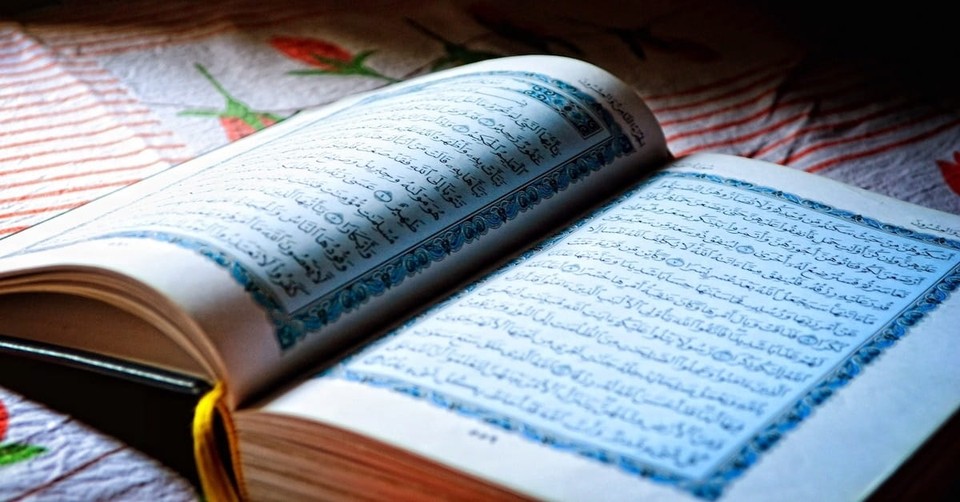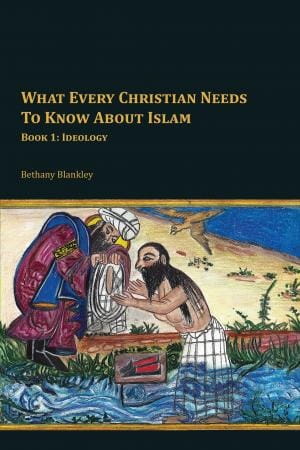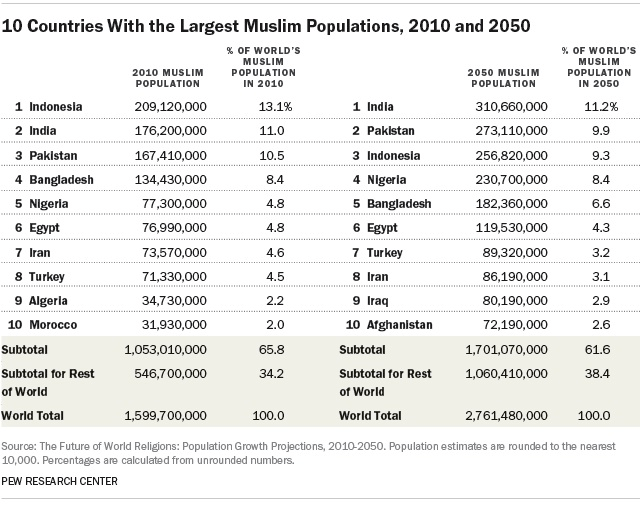5 Things Christians Should Know about Muslims

Understanding what Islam is—and is not—is a matter of eternal consequence. One of the greatest dangers Christians face is being unable to distinguish truth from fiction. Unfortunately, many self-identifying Christians, either naïve, misinformed, or deceived, make false claims about Islam, and believe they are true. But, one cannot know what is true without knowing what is false. Discerning the difference requires wisdom and courage.
Here are five key points about Islam, which are also explained in my new book, What Every Christian Needs to Know About Islam, for Christians to consider to better understand an ideology that is often misrepresented by the media—and the church.
1. There’s a difference between being a Muslim and an Islamist.
In the same way that secular (nominal) Christians do not represent Christianity, it is important to understand that the same is true of Islam. A Muslim by birth, geography, culture or nationality is not the same as an Islamist who follows the teachings of the Qur’an and embraces Shari’a law (which are regulations outlined in the Qur’an, and Islamic jurisprudence). The first is a “secular” or cultural Muslim; the second is not.
Islam means “submission” to Allah and to the law of the Qur’an. It is a political ideology that is totalitarian in nature and encompasses all areas of life. Islam is not a race or ethnicity. Any person, regardless of ethnicity or nationality, can follow it.
2. The vast majority of Muslims are not Arabs.
Arabs only account for roughly 20 percent of Muslims worldwide. In fact, by population, Indonesia has more Muslims than the entire Middle East combined.
Image courtesy: Pew Research Center
3. All Muslims do not adhere to a single belief system.
No one can categorically state what all Muslims believe (other than pointing to the Five Pillars of Islam). For example, a Muslim acquaintance of mine is similar to many Muslims in America. She was unaware of much of what I explained to her from the Qur’an because she has not read it.
She is a naturalized citizen who immigrated to America over twenty years ago from Senegal with her Roman Catholic Senegalese husband. They are both “spiritual,” not religious. To her, being a Muslim is based on performing good works, meditating, fasting, and praying.
But according to the Qur’an, no true female follower of Islam can marry a non-Muslim man unless she is doing so under the auspices of taqiyya, which is Qur’an-sanctioned deceit. If not, and her husband refuses to become a Muslim, he would be killed under Shari’a law. She might be spared, although still severely punished. If she chose to leave Islam, she and her entire family would be killed. Because she is living in America this is less likely to happen.
4. Islam is not a peaceful religion according to its doctrine.
Secular Muslims and especially formerly devout Islamists, cannot freely leave Islam, or deny the Qur'an or Islam, without fear of being killed. The Qur’an instructs that they be killed.
After a series of caliphs ruled over Muslims, the ulema (Islamic scholars) sought to define the Muslim existence within their immediate geopolitical context. In doing so, they divided all of humanity into two categories: Dar al-Harb and Dar el-Salam.
Dar al-Harb means, “House of War,” which includes everyone who rejects Islam, the Qur’an, Allah, and Muhammad; in essence all non-Muslims.
Dar el-Salam means, “House of Peace,” which includes everyone who submits (Isl’m) and is ruled by Shari’a law in every area of his or her lives.
Although the terms used to describe this two-fold existence are not mentioned specifically in the Qur’an, they are taught in all Islamic schools of thought.
The Sunni Hanafi School of Islamic Jurisprudence teaches that rulers of Muslim lands bordering enemy territory, Dar al-Harb, (all non-Muslim lands), are obligated to wage jihad against their neighbors.
Contrary to the English and western meaning of peace, the Islamic definition exists only within the two-fold mindset of humanity’s condition: those who are at peace (under Islamic rule) and those who are not.
In theory, Islamic peace exists under Shari’a law. But in reality, those already living in Dar el-Salam do not experience the western view of peace. Peace does not exist for most women and children who are subjugated to extreme cruelty and abuse. The majority of Muslim women and girls, including those in America, are in arranged marriages, subjugated to FGM, and are primary victims of honor killings. (Human rights abuses under Islam are surveyed in book 3 of the series.)
And, even under Dar el-Salam, as was the case during and after Muhammad’s life, Islamists have never stopped fighting each other. War and violence coexists with Dar el-Salam.
5. Most Muslims are illiterate and have never read the Qur'an.
Muslims are not to be considered enemies to kill but as an unreached people group in need of the gospel.
Based on research cited in my book, 40 percent of the population of Muslim states falls below the poverty level. Fifty-seven Islamic countries are the world’s poorest and most illiterate. Sixty percent of Muslims worldwide are illiterate; fifty percent of Arab women cannot read.
Efforts to teach Muslims to read and provide a Bible in their language, have resulted in many coming to Christ, living a life of freedom and true peace.
Christians can support ministries like Open Doors, Voice of Martyrs, or Samaritan’s Purse that are reaching Muslims worldwide, providing humanitarian aid and Bibles in their languages.
But there is also an immediate need and opportunity in our own backyards. Because of failed immigration policies, more Muslims are in America than ever before—presenting an incredible opportunity for Christians to share the gospel.
The last chapter of the book shares testimonies from former Muslims, who after they came to America and met Christians, accepted Christ. One’s mother had sent him to a jihad training camp as a child. Another trained for the terrorist organization Hezbollah. Yet they were not beyond God’s reach.
Because of the U.S. Constitution, Muslims have the freedom to leave Islam without fear of being killed. As Christians, we have the responsibility and opportunity to point to the origin of freedom: Jesus Christ.

Follow her: BethanyBlankley.com, @BethanyBlankley, and https://www.facebook.com/BlankleyBethany/.
Her book is available for purchase at Xulon Press and Amazon.
Book cover image: ©BethanyBlankley
Article photo courtesy: ©Pixabay/Afshad
Originally published August 22, 2018.






